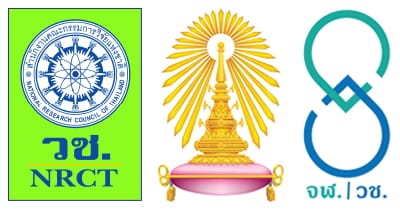กรอบแผนงานวิจัยและนวัตกรรม (Research and Development Topics)
1. แผนงานวิจัยกระบวนการนโยบายแบบมีส่วนร่วมของภาคส่วนที่เกี่ยวข้องและมิติสังคมในการบริหารจัดการน้ำในลุ่มน้ำพื้นที่ EEC
1.1 การสร้างวิสัยทัศน์การบริหารจัดการน้ำร่วมภายใต้ยุทธศาสตร์การพัฒนาพื้นที่และความต้องการจากหลายภาคส่วน ท้องถิ่น ชุมชน และประชาชน
1.2 การศึกษาการจำลองเงื่อนไขอุปสงค์หลายภาคส่วนและชุมชน และเงื่อนไขอุปทานในการจัดสรรน้ำหลายรูปแบบเพื่อการตัดสินใจการจัดสรรน้ำ และกำหนดกติกาการจัดสรรน้ำต้นทุน แบ่งปันร่วมกันหลายพื้นที่หลายกิจกรรมในลุ่มน้ำ การจัดสรรน้ำข้ามภาคส่วน การจัดสรรน้ำในท้องถิ่นและชุมชน
1.3 การวิจัยการบริหารจัดการความขัดแย้งของสังคมในการแก้ไขปัญหาน้ำ บนเงื่อนไขความร่วมมือแบบฝ่ายเดียว สองฝ่าย หรือสามฝ่าย ร่วมกับการใช้ข้อมูล เทคโนโลยี เครื่องมือสังคม และเครื่องมือการจัดการน้ำ เช่น ชุมชนปฏิบัติการเอง, ชุมชนกับหน่วยงานท้องถิ่น, ชุมชนกับหน่วยงานท้องถิ่นและหน่วยงานส่วนกลาง, ชุมชนกับภาคธุรกิจ, ภาคธุรกิจกับภาคธุรกิจ เป็นต้น
1. Participatory policy process of related sectors and social dimensions in water management in the EEC.
1.1 Creating a vision for joint water management under the area development strategy and necessary needs from many sectors, local governments, communities, and the public.
1.2 Study of simulation of multi-sector and community demand conditions and supply conditions in various water allocation models for water allocation decision-making and setting rules for water allocation of cost, sharing in many areas and activities in the river basin, water allocation across sectors, local and community water allocation
1.3 Research on social conflict management in solving water problems under conditions of unilateral, bilateral or trilateral cooperation, together with the use of data, technology, social tools and water management tools such as communities operating themselves, communities with local agencies, communities with local and central agencies, communities with business sector, and business with business sector, etc.
2. แผนงานวิจัยการจัดการน้ำให้สมดุลทั้งด้านอุปสงค์และอุปทาน และเกิดการประหยัดน้ำในภาพรวมของประเทศ การศึกษาศักยภาพในการประยัดน้ำที่เป็นปัจจุบันและอนาคต โดยพิจารณาทั้งด้านอุปสงค์และอุปทานและเชื่อมโยงแผนการพัฒนาพื้นที่และยุทธศาสตร์ชาติระยะยาว เพื่อกำหนดเป้าหมายการประหยัดน้ำรายภาคส่วนและรายพื้นที่ และกำหนดปีฐานและแนวทางการตรวจวัด
2.1 การศึกษาทำความเข้าใจเศรษฐศาสตร์พฤติกรรม/การมีส่วนร่วมในการลดการใช้น้ำในด้านประชาชน ด้านการเกษตร ด้านอุตสาหกรรม จำแนกตามภูมิภาค ลุ่มน้ำหลักและลุ่มน้ำสาขา
2.2 การศึกษาการประเมินนโยบายของรัฐบาลและหน่วยงานรัฐที่มีผลต่อด้านอุปสงค์และด้านอุปทานของทรัพยากรน้ำ และผลต่อมิติความมั่นคงทางน้ำ เพื่อทบทวนและกำหนดนโยบายการพัฒนาต่าง ๆ ให้มีการพยากรณ์ demand for water usage รวมไว้ในการจัดทำนโยบาย
2.3 การศึกษาวิจัยกำหนดมาตรการลดการใช้น้ำ ใช้ให้คุ้มค่า และการนำกลับมาใช้ใหม่ รวมถึงมาตรการต่าง ๆ สนับสนุนให้เกิดแรงจูงใจในการประหยดน้ำและเพิ่มประสิทธิภาพการใช้น้ำ เช่น ระบบ water footprint ในผลิตภัณฑ์และองค์กร ระบบการจัดเก็บค่าน้ำ
2.4 การศึกษาการลงทุนการประหยัดน้ำและการเพิ่มประสิทธิภาพการใช้น้ำ ทดลองนำร่องในโรงงานอุตสาหกรรม ในพื้นที่ชลประทานและนอกเขตชลประทาน และในครัวเรือน
2.5 การศึกษาประเด็นกฎหมายในการจัดการพื้นที่ และการจัดการน้ำสาธารณะ
2. Water management to balance demand and supply and create overall water-savings in the country. Study the current and future water-saving potential by considering demand and supply and linking it to the area development plan and long-term national strategy to set water-saving targets for each sector and area, including setting base years and measurement guidelines.
2.1 Study and understand behavioral economics/participation in reducing water usage in the public, agricultural and industrial sectors, classified by region, main river basin and tributary river basin.
2.2 Study the assessment of government and government agency policies affecting the demand and supply sides of water resources and water security to review and determine various development policies to forecast demand for water usage and into policy making.
2.3 Research on measures to reduce water use, be efficient, and reuse, including measures to encourage water conservation and increase water efficiency, such as water footprint systems in products and organizations, and water fee collection systems
2.4 Study of investment in water-saving and water efficiency, including pilot testing in industrial plants, irrigation areas, outside irrigation areas, and households.
2.5 Study of legal issues in land management and public water management.
3. แผนงานวิจัยและพัฒนาเทคโนโลยีช่วยในการจัดการน้ำ (การส่งน้ำ การคาดการณ์ฝน และระบบการเตือนภัยที่สื่อสารสองทาง) และนวัตกรรมใหม่ในการประหยัดน้ำ
3.1 การวิจัยเทคโนโลยีการคาดการณ์ฝนล่วงหน้าสองสัปดาห์ และระบบการแจ้งเตือนที่มีความละเอียดระดับพื้นที่
3.2 การวิจัยนวัตกรรมใหม่ ๆ ในการบริหารอ่างเก็บน้ำให้ใช้ประโยชน์จากแหล่งน้ำต้นทุนได้เพิ่มขึ้น
3.3 การวิจัยเทคโนโลยีการใช้เทคนิค ICT และนวัตกรรมใหม่ ๆ ในการลดน้ำใช้ การใช้น้ำด้วยระบบปิด และการลดการสูญเสียที่แหล่งน้ำต้นทุน ในระบบส่งน้ำและกระจายน้ำชลประทาน ในระบบท่อส่งน้ำและจ่ายน้ำประปา ในภาคธุรกิจ ในระดับครัวเรือน
3.4 การวิจัยแนวทางปฏิบัติที่ดีที่สุดในการใช้น้ำอย่างมีประสิทธิภาพและประหยัดทรัพยากรน้ำในภาคอุตสาหกรรม
3. Research and development plan for water management technology (water delivery, rain forecasting, and two-way communication warning systems) and innovations in water-saving
3.1 Research on two-week rainfall forecasting technology and spatially-resolved warning systems.
3.2 Research on new innovations in reservoir management to maximize the use of water resources.
3.3 Research on technology using ICT techniques and new innovations to reduce water usage, use water in closed systems, and reduce losses at water sources in water delivery and irrigation distribution systems, as well as in water pipes and water distribution systems in the business sector and households.
3.4 Research on best practices for efficient water use and saving water resources in the industrial sector.
4. แผนงานวิจัยการขับเคลื่อนสังคมเพื่อสร้างวัฒนธรรมรักษ์น้ำและการประหยัดน้ำ
4.1 การสังเคราะห์องค์ความรู้เรื่องน้ำของประเทศไทย และพัฒนา Knowledge platform เพื่อนำมาขับเคลื่อนสังคม
4.2 การขยายผลบทเรียนความสำเร็จการแก้ไขปัญหาน้ำ เพื่อสานเครือข่ายภาคประชาชนและกลุ่มผู้ใช้น้ำให้เกิดความเข้มแข็งและมีพลังร่วมในกระบวนการนโยบายและการแก้ไขปัญหาน้ำ
4.3 การขับเคลื่อนกระบวนการนโยบายสาธารณะเรื่องน้ำในประเด็นสำคัญ ๆ เช่น การจัดระเบียบองค์กรใหม่ กฎระเบียบในการแบกรับค่าใช้จ่ายในการใช้น้ำสาธารณะ หรือความเท่าเทียมในการใช้น้ำ การจัดเก็บค่าน้ำ การดูแลคุณภาพน้ำที่ใช้ภาคการเกษตรและอื่น ๆ เช่น การทำประมง
4.4 การวิจัยความรู้สังคมและการบริหารจัดการความขัดแย้งทางสังคมให้รวมเข้าไว้เป็นส่วนของการเรียนการสอนเรื่องน้ำและทรัพยากรน้ำ
4. Driving society to create a culture of water conservation and water-savingavving
4.1 Synthesizing knowledge about water in Thailand and developing a knowledge platform to drive society.
4.2 Expanding the lessons of success in solving water problems to build networks of the public sector and water user groups to strengthen them towards having joint power in the policy process and solving water problems.
4.3 Driving the public policy process on water in important issues such as reorganization, regulations on the cost of public water use, equality in water use, water fee collection, and water quality management for agricultural and other sectors such as fisheries.
4.4 Research on social knowledge and social conflict management to be integrated into teaching about water and water resources.
